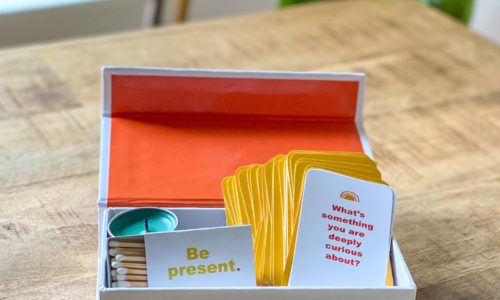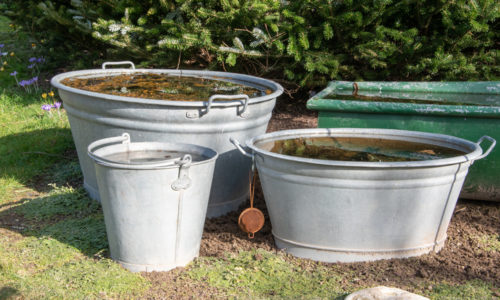Making the Most of an Acton Quest Exhibition: What Just Happened and How Do I Talk to My Child About It?
by Shannon Falkenstein, M.Ed., Acton Academy & Montessori, El Salvador (Guest post from my fellow Acton founder)
Dear Families,
At Acton Academy, we choose public exhibitions over exams. So, at the end of every Quest, rather than taking a test, our Eagles are challenged to show what they have learned through a creative event for an audience of their peers, parents and professional in a related field. Exhibitions come in many forms: an original theater production, a chess tournament or a mock trial of Socrates, to list just a few examples.
I will never forget our first elementary studio Exhibition in 2016 for the Rocket Quest – by most accounts, it was a total disaster! Founding parents arrived with great expectations for this new, innovative model of education that they had bravely chosen. But the Eagles were disorganized and conflictive, and many of their rockets did not function. Expectation and reality did not match, no one seemed to be in charge and it took everything I had as a Founder and Guide to not step in, disempower the Eagles and make everything look like what the parents’ expectant faces wanted.
I can still recall my anxiety and hopefulness of that day – worried that the parents would judge us, yet confident that over time the Eagles would improved greatly through failure, reflection and heroism. Which they did.
Four years later, during COVID lockdown, our newest elementary Eagles had the challenge of presenting their Imagineering-in-a-Box theme parks and COVID Inventions live over Zoom. Given technical and timing challenges, and the dampening effect of long-term isolation, the Exhibition reminded me a lot of that first Rocket Quest. As we reflected with our own Eagles over family dinner, I realized that new Acton parents may need a road map for dealing with what they just saw. So, I wrote this brief guide to help them:
Dear Families,
We just got off of the Zoom where we spent about 90 minutes watching the Eagles present their work.
What did you observe in the Eagles? In yourselves?
Was [the Guide’s] microphone really broken? Or did she invent an elegant way of saying “Eagles, this is YOUR exhibition – I believe in you and you can do this”?
Did you feel uncomfortable, impatient or frustrated by technical difficulties, long presentations where you couldn’t quite understand what was happening, or by a feeling that their work needed to be better?
Did you feel impressed by the inventions, creative quality or hard work and skill building that some of the projects displayed?
If you felt any of this, then you are… a totally normal Acton parent!
The Exhibition process at Acton is VERY different from a final Exam, or even from a Performance that is directed mostly by adults at a traditional school.
Remember: Acton Academy’s mission is that every person who enters our doors will find or develop a calling to serve or change the world.
While our Elementary students must demonstrate mastery in Core Skills areas such as Reading, Writing and Mathematics, their Quest work is a place for them to explore, create, be free, collaborate, fail, try again and ultimately discover their gifts and talents and face their own weaknesses such as procrastination, distraction and resistance. They improve by a process of 360 degree feedback; feedback to themselves, from their peers, and from their parents, guides and other adult heroes such as professionals in the field.
When a teacher directs a student’s creative process, or a parent steps in to “grab the glue gun” and make the model look better, the child’s creative process is short-circuited and oftentimes begins to wane.
On the other hand, if we can hang in there, watch, observe and use our natural curiosity to learn more about them, we can be powerful agents in holding a safe, reflective space in which they can grow.
How do we do this? By using the Socratic Method.
I invite you to let go of wanting to fix, improve or praise your young Eagle. Instead, I want you to get really curious about how they did their projects and their presentations.
Here are a few questions to get you started. I encourage you to come up with more on your own and, if you want, to share them with me.
1. Tell me more about how you came up with your idea.
2. Did your project end up looking like you imagined that it would? If yes, how did you do that? If not, which parts did not meet your expectations?
3. What did you think of your presentation tonight? Would you change anything? What would you do differently next time?
4. What was your favorite or most satisfying part of your presentation?
In my case, my daughter said that the video she showed was actually her draft and not her final video. She was disappointed that her “good” video wasn’t presented. So, I asked her how she would do things differently. I gave an example of a rehearsal vs a dress rehearsal and asked her how this was similar. She decided that next time, the Eagles should do a dress rehearsal.
In my experience as a traditional teacher and later an Acton Guide, I have seen that a child who tries something and fails and then learns from it will internalize that lesson forever, whereas a child who is directed by a teacher to make a perfect presentation in order to please parents or to get a good grade, actually doesn’t learn the most important lesson of how to present, reflect, and improve over time.
One last thing: it can be tempting to criticize other Eagles’ work. It is in our human nature. But, when we practice comparing ourselves or our children to others, we enter into a never-ending game of insecurity. What I find is much more powerful, positive and gives us more energy to be high performing and wholehearted people is to celebrate the work and contributions of everyone in our community and to only compare ourselves to who we were yesterday. That way, you can free yourself from the shame and bad feelings that inevitably come with being judgmental and critical.
Your Eagles did great, you did great, and we are going to have a great year together.
I hope this helps you be a Socratic Acton parent on this interesting new learning journey.
To experience this content as a video in Spanish, please click here to view “¿Cómo hablo con mi Eagle sobre su Exposición?” on Acton Academy & Montessori El Salvador’s YouTube Channel.


